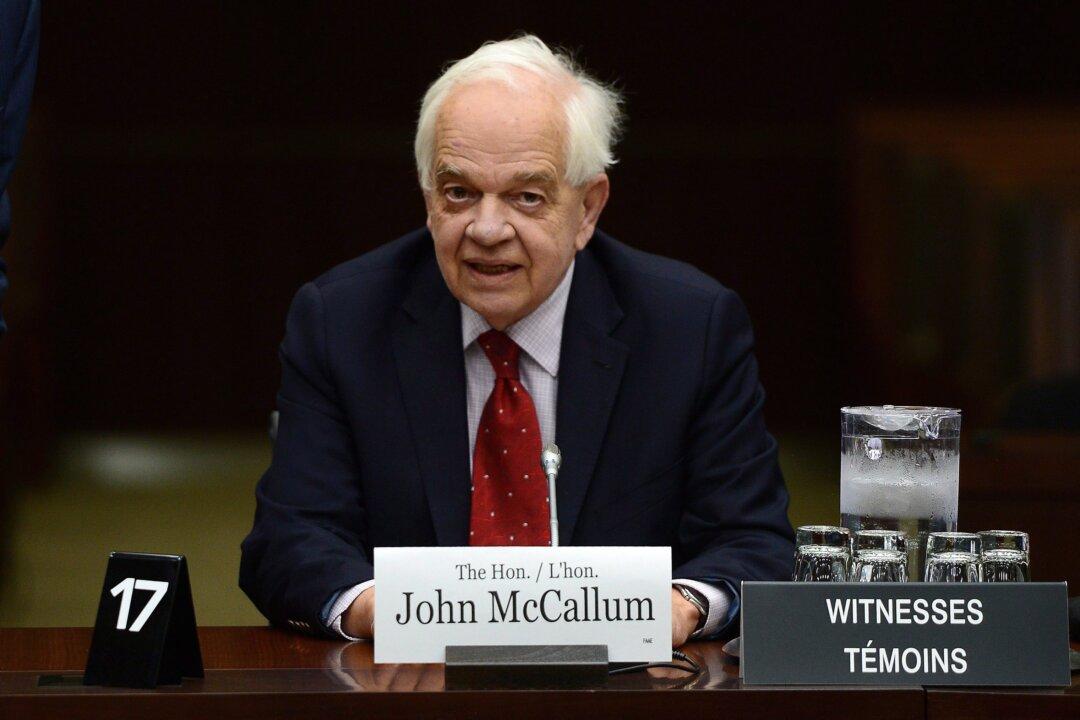OTTAWA—Canada’s ambassador to China admitted to an ill-timed and politically explosive slip of the tongue when he suggested detained Huawei executive Meng Wanzhou had a strong case to avoid extradition to the United States.
John McCallum’s surprise mea-culpa on Jan. 24 was the latest head-snapping development in the saga of Canada’s fallout with China over Meng’s arrest. It came just hours after Prime Minister Justin Trudeau publicly defended him in the face of Conservatives’ demands to fire him.





